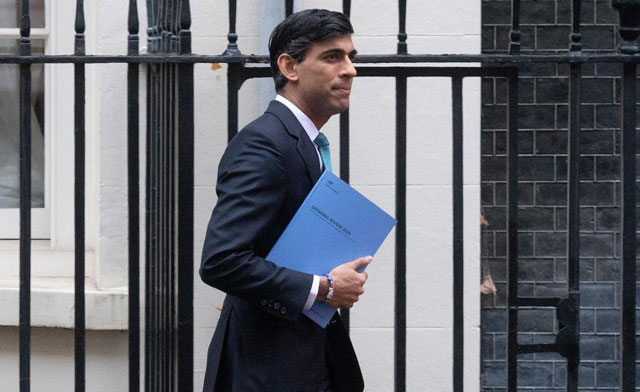
Koru Kids is one of many digital platforms positioning themselves as ‘technofixes’ to costly and oversubscribed providers
COMMENT | Dalia Gebrial | Rishi Sunak is being investigated over a potential breach of rules for failing to declare the financial interest of his wife, Akshata Murthy, in Koru Kids, one of six childminder agencies that benefited from a policy change in last month’s budget.
Whether or not Sunak broke the rules by failing to declare his wife’s interest will be decided by parliament’s commissioner for standards. But beneath this technocratic tale of government bureaucracy is a much deeper story about the depletion of Britain’s childcare infrastructure over a decade of austerity, the proliferation of childcare apps, and the enrichment of those who have stepped in to fill gaps in provision.
Koru Kids is one of many digital sites to emerge in the past five years, positioning themselves as “technofixes” to Britain’s childcare crisis. Through their digital matching service, these apps which also include Bubble, childcare.co.uk and care.com allow parents to book a childcare worker online, by the hour.
Bubble and childcare.co.uk lean more towards an “on-demand” model, where parents can recruit a worker at short notice and sporadically. Others, like Koru Kids, focus more on regular arrangements similar to an agency, but with less oversight: they do not directly match workers with clients and are not responsible for the terms of the contract.
As any parent or guardian knows, childcare in this country is unaffordable and often inaccessible. Local authorities have the power to provide cheap or free services, but budget cuts mean that in practice, provision is minimal. Only half of councils in England have enough childcare places to meet the demand of full-time working parents. While Scotland and Wales have slightly more free childcare provision, it is still not enough to meet demand and the problem of staff retention and availability remains.
Most parents have to turn to private providers instead and are at the mercy of the market’s soaring prices. The government provides some cash support for parents seeking private care provision through the 15-30 hours free childcare scheme for 38 weeks a year. But this isn’t enough given that provision is currently limited to three- and four-year-olds, when most parents go back to work after a maximum of one year of leave, and work more than 38 weeks a year. The policy is to be extended to all children between nine months and five years old from September 2024, but that doesn’t help in the present moment. Even those able to make full use of government provision still find themselves paying private providers to fill the gaps in the current system.
In this landscape, childcare apps provide cheap, convenient and accessible care, which sounds ideal; but the reality is that you get what you pay for to the detriment of workers, children and their families. During my research on app-based childcare, I have spoken to dozens of nannies, babysitters and childminders working on different platforms. Many share stories of precarity, low wages and anxiety-inducing worker surveillance via rating systems. Koru Kids is the best of a bad bunch: it does, unlike some other platforms, require the use of some form of contract and, after costs, workers are paid minimum wage. That’s less a credit to Koru Kids and more an indictment of the increasingly gig-like conditions being normalised in the sector. Groups such as the Nanny Solidarity Network are campaigning for better conditions, but the fight is tough for such an unprotected workforce.
We know long-term relationship-building is essential to a healthy care relationship but with the proliferation of on-demand apps and “patchwork” care models, consistency is almost impossible. Children with physical and learning disabilities are especially impacted, as many parents struggle to find consistent specialist care at an affordable rate. In a marketplace model, workers with special educational needs (SEN) experience and expertise understandably charge more. This cost should be covered by the government not by parents who happen to have children with SEN. Platforms also do not guarantee the provision of SEN workers you just have to hope someone happens to be available when you need them. In my conversations with workers, many described instances where they were hired to take care of a child with specialist needs, despite not being equipped to do so. Sometimes, parents were so desperate to find a carer, they did not tell the worker beforehand.
The sad thing is, the system does not need to be this way. The relatively meagre amount of public money earmarked for childcare subsidises the activities of for-profit childcare companies. This means that government money is going into the pockets of shareholders and directors whose priority is profit, not provision. And the profits are big. Britain has one of the most expensive childcare systems in the developed world – costs for the average family have increased at three times the rate of wages since 2010. Indeed, the government scheme Koru Kids benefited from uses public money for cash incentives to get more childminders working for private providers.
Countries like Germany, where childcare is not a for-profit commodity but a government-provided service, show that an alternative is possible. For as little as €50 a month, parents can access all manner of services: childminders, day nurseries, after-school clubs. In Britain, that would not cover a week of the same provisions.
At one point, it looked like we were heading in a different direction. In the early 2000s, Sure Start centres, delivered via local authorities, provided free early years childcare for a minimum of 10 hours a day to those most deprived areas. For the rest of the country, they provided breakfast clubs, drop-in sessions, stay and plays and study support. Workers in these centres had job security and full employment rights. However, these provisions were never fully integrated into the public service system like, say, the NHS, and so did not survive the austerity wave that was to come.
Austerity has turned our essential care services into profitable markets to be exploited. When talking about the undeclared interests that govern economic decision-making in this country, the problem goes far deeper than one prime minister and one company. The shared class interest between politicians who implement austerity and market forces exploiting the fallout are deeply intertwined. In the case of Murthy and Sunak, they have become indistinguishable.
*****

Dalia Gebrial is a writer and political economist at the LSE, working on race, labour and digital capitalism
Source: Gurdian
 The Independent Uganda: You get the Truth we Pay the Price
The Independent Uganda: You get the Truth we Pay the Price



